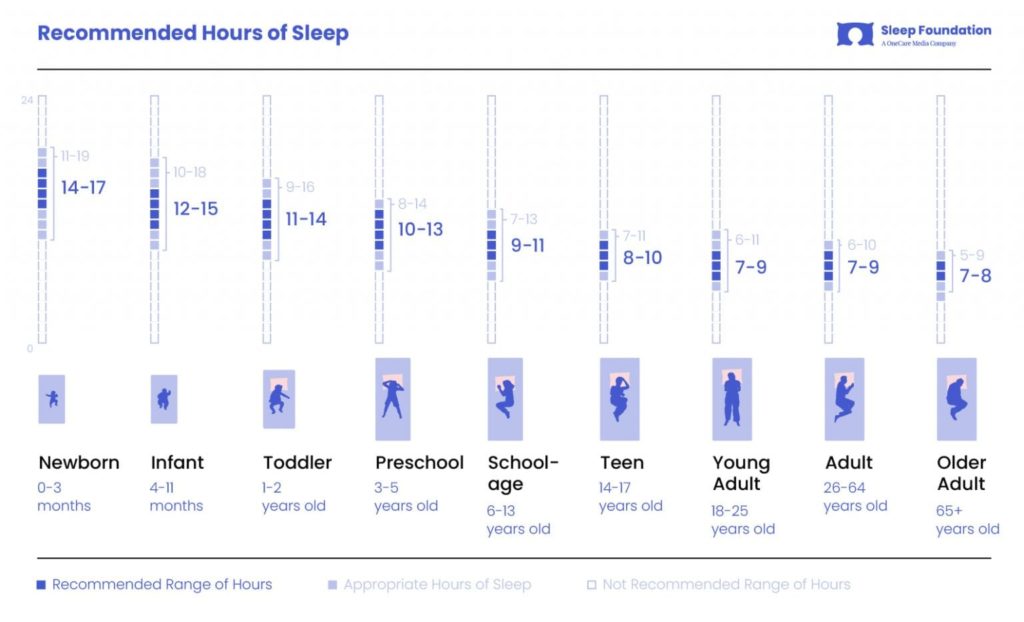Sleep
Why Sleep is So Important
Adequate sleep is critical for your overall wellbeing. Sleep can help with various things, such as fighting off illnesses, feeling mentally sharp, and so much more. While taking vitamins, exercising, and eating healthy are all crucial to staying healthy, you won’t receive their full benefits if you’re not getting enough sleep. While everybody’s specific needs are different, it’s a general rule for a healthy adult to get between seven to nine hours of sleep per night.
Let’s discuss the benefits of getting a good night’s sleep and how it can impact your health over time. Understanding the importance of sleep and how much you need each night will help you maintain a proper sleep schedule to achieve optimal health.
Sleep Helps With Weight Control

If you’ve noticed that you’re putting more weight on recently than usual, there’s a good chance lack of sleep is the culprit. Your body burns calories and metabolizes food and drink while you sleep. People who get less than seven hours of sleep per night are more likely to become obese than those who get at least seven hours of sleep per night.
Another reason that sleep can help you lose weight is because of the energy it provides when you wake up. When you have energy, you feel more motivated to exercise and be active, whereas sleepless nights often lead to a desire for food cravings and sugary energy drinks.
Immune System Boost
Perhaps the biggest benefit of getting enough sleep is boosting your immune system. In the same way that your body needs rest to feel strong and vibrant, the cells and defenders of your immune system do as well. Getting enough rest and sleep will make you much less likely to contract seasonal illnesses such as colds or flu. Even if you do get sick, the effects are usually less severe since your body is strong enough to fight the illness.
Improve Your Heart Strength
A lack of sleep is directly linked to heart issues, including high blood pressure, which is a leading cause of heart problems. Keep your heart healthy by getting the adequate rest that your body needs to thrive.
Improve Your Mood
There’s no denying that getting enough sleep puts people in a better mood. Not getting enough sleep consistently is also linked to depression. The reason this happens is that you wake up feeling tired, grumpy, and unenergetic. You don’t desire to exercise, socialize, or exert any type of energy simply because you don’t have any. However, when you get enough rest, you’re more likely to have mental clarity and the ability to problem solve life’s challenges.
Remove Mind Fog and Help You Focus
A rough night of sleep won’t just affect you physically. It will also affect you mentally. If you’ve ever gone to work and felt lost or like you couldn’t focus, there’s a good chance you didn’t get enough sleep. You’ll find it suddenly harder to process complex thoughts or ideas and have trouble focusing at work or school. This not only impacts your job performance, but it could even be a safety concern for some types of jobs.

Perform Better Athletically
There’s a reason that coaches and trainers tell their players to get a good night’s rest before a big game or match. It’s because they understand that getting enough sleep is paramount to being at the top of your game physically. When you get enough sleep, nights will lead to days of peak performance.
How Much Sleep Do You Need?
The amount of sleep each person needs is dependent on a variety of factors. These include immediate sleep needs that may be caused by overexertion, extended work hours, or periods of higher stress. Additionally, each person can have differing sleep needs for their background. It is important to listen to your body to understand your unique needs.
Age plays a major role in the amount of sleep that people generally need throughout their lives. The requirements for sleep are at the highest levels for newborn babies, ranging between 14-17 hours per night, infants (12-15 hours per night), and then steadily decreasing the amount of sleep that people need as they age. Teenagers, through adults generally require around 8 hours of sleep, with some minor decreases in sleep need as an individual’s age progresses. Adults 65+ years old need between 7-8 hours of sleep per night.

Your Body Heals While You Sleep
Sleep also helps your body’s natural healing process by reducing inflammation in damaged areas. Sleep has a significant impact on your central nervous system, which is where inflammation is regulated. Getting enough sleep helps reduce inflammation, and not getting enough sleep can cause inflammation. Inflammation happens because a lack of sleep or disturbed sleep activates neural sensor pathways causing them to release certain chemicals and proteins. This, in turn, causes inflammation, which can lead to various conditions, including Alzheimer’s, dementia, cancer, heart disease, obesity, depression, and diabetes.Sleep and Your Health
As you can see, there are plenty of good reasons to get enough sleep each night. Proper rest won’t just put you in a better mood and mindset for the day. It will also decrease your chances of having serious health problems. If you value your health and want to live life to the fullest, sleep should be a top priority.Like? Share with your friends
Learn More Information on How Somni Can Offer You a Better Sleep Experience*

